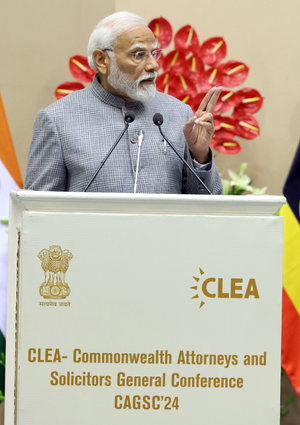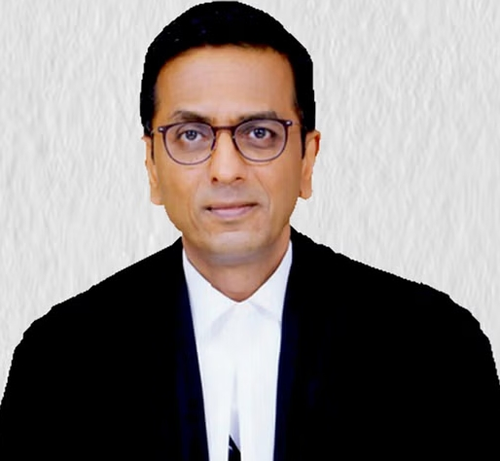India
Portal of trouble opens again for Madhya Pradesh tribals on the lookout for pattas

Bhopal, Jan 29 (IANS/ 101Reporters) Ravalusingh Baiga (50) had been cultivating four to five acres of land since 1998. When the Forest Rights Act (FRA) came into existence in 2006, he filed a lease claim for those eight fields. However, the lease copy he got in 2016 gave him the right to only an acre, or four fields.
“Now you can guess how we run the house,” sighs Ravalusingh, whose eight-member family lives at Dhaba in Samnapur tehsil of Madhya Pradesh’s Dindori district.
Budhlal Baiga (40) alleges that every third person in the village has suffered this setback.
“They got 10 or 20 decimals after making claims for two to five acres. Despite lodging complaints and officials taking note, the problem persists,” he says.
Organisations working for tribal welfare claim that 90 per cent of the distributed leases have seen unwarranted reduction of land, whether the application was made offline or online. The problem persists not only in the 89 tribal development blocks of Madhya Pradesh, but also in other states Jharkhand, Rajasthan, Odisha and Chhattisgarh.
Madhuri Ben, president, Jan Jagruti Samiti, which helps tribals in Burhanpur attain forest rights pattas (land titles), says applicants are now being forced to file claims through Van Mitra portal or app. “This has proved even more disastrous.”
Why portal?
The members or community of the Scheduled Tribes who primarily reside in and depend on the forests or forest land for livelihood can claim rights under FRA 2006. Any member or community whose three generations (75 years) prior to December 13, 2005, primarily resided in forest land is also eligible. Ten acres can be claimed for individual lease, whereas no limit has been set for community lease.
When rejections mounted, the state government launched the Madhya Pradesh Van Mitra portal and mobile app in December 2019 to review the rejected claims. From December 2019 to November 2022, a total of 6,27,513 applications went through the Van Mitra portal and 6,17,284 claims (98%) were resolved.
However, the portal gradually shut in 2020, citing confusion due to the arrival of new claims. By May last year, the portal was functional only in eight of the total 55 districts. Last July, the portal reopened to hear both new and rejected claims, but that meant only more trouble. The claims sent back for amendments will still be heard offline.
Before reopening the portal, a 12-member task force was formed last April under the chairmanship of the then Chief Minister, Shivraj Singh Chouhan, for effective implementation of the rules of Panchayats (Extension to Scheduled Areas) Act, 1996, and FRA. This task force is functional only on paper now.
Task force’s suggestions ignored
Task force member Milind Thatte says they had suggested that the forest lease hearing should be held offline at gram sabhas because the rules itself say that the decision should be taken at gram sabha public meeting. “We had suggested that Van Mitra portal is needed to bring transparency, but should be limited to keeping records of claim documents, gram sabha decisions and leases,” he details.
Another task force member and FRA expert Dr Sharad Lele tells 101Reporters that he had brought issues related to portal use before the government’s notice in a meeting held under the chairmanship of Chouhan, about 10 months ago. Some of them were poor network coverage, non-availability of mobiles or laptops, poor education status of most tribals, and lack of clarity in satellite images.
However, last April itself, the administration called lease applications in 20 forest villages of Dindori district with help from Ashoka Trust for Research in Ecology and the Environment (ATREE) and National Institute of Women, Child and Youth Development. “Wrong names and land compartments, and mistakes in farm size and location were found in the approved land titles during this period.”
“As these are old forest villages settled by the forest department, all the fields here are eligible for individual pattas. So it was decided to mark and measure every field. Maps were prepared and then claims made afresh,” says Lele, Distinguished Fellow, ATREE, which also applied for amendments in many claims.
Notably, 230 claims, including new and those requiring revisions, were filed offline at Sheetalpani in Bajag tehsil and Pondi in Samnapur tehsil, in culmination of the work that began last April. Amendments had to be made to 70 per cent of the claims given earlier. The work could not proceed in the remaining 18 villages due to portal reopening.
Offline new applications stalled
“We first examined the land titles received at Sheetalpani and Pondi, and realised that most of them needed amendment. We formed a team each of village elders and youth. We held workshops to make tribals aware of the maps, land measurement and other technical information,” details Mohit Mahajan, ATREE coordinator, Dindori.
Along with both teams, ATREE listed farms of every person in a register. Maps were prepared using mobiles with GPS and AMCHO CFR open source application to mark the location and size of each person’s farm. Details of every claimant’s Aadhaar and ration cards, and voter ID were added. After claims were resubmitted offline, the forest rights committee along with revenue and forest officials measured the plots.
After the claims got gram sabha approval, they went to the sub-divisional and district committees, where 90 out of the 134 claims of Sheetalpani got approval. The remaining were returned to the gram sabha for corrections. However, only 51 of the 90 approved claimants have received land titles. Remaining are on hold because they are new claims, for which the district administration now allows applications only online.
Of the 96 claims from Pondi, the sub-divisional committee accepted 80, while the forest department wanted changes to the rest. After site re-inspection and claim improvement, the claims have reached the district committee.
The district administration has not made a final decision on the mandatory online process. The district magistrate had written to the state government in October itself to allow offline process, but there has been no response.
Not much luck with offline revision
“The lease of most of the people in our village is yet to be amended… Van Mitra portal has been reopened, and officials are now forcing them to apply online only,” alleges Bigari Singh (32), a Baiga tribal of Sheetalpani.
Bigari has been quite lucky in his second attempt. He filed a forest rights claim for 1.99 hectares in 2008.
“Our claim got accepted the next year, but the forest department team destroyed half of my crop one day. It was through them that we came to know that our lease was only for 0.32 hectare,” he says.
A revised lease for 1.99 hectares was issued to Bigari on September 25 last year, after he approached ATREE.
Baisakhu Baiga (55) has been into farming at Sheetalpani for years together.
“I made a claim for 2.57 hectares in 2006, but got 0.174 hectare on lease in 2009,” says Baisakhu, who has an eight-member family.
After much struggle, he filed a claim with ATREE’s help last year and received his revised lease giving rights to the entire 2.57 hectares on September 25.
Making online option a norm
Sunaram Navasiya (47) of Sheetalpani made lease amendment applications several times, but got rejected repeatedly.
“We worked jointly with ATREE to prepare maps of every farm and land for three months. The officials told us many times that our applications are correct, but added that their hands are tied,” he explains.
“‘You have to apply through Van Mitra portal only; pattas will not be given by applying offline’ is the standard reply we get,” he says.
Land title of Nasu Baiga (45) of Pondi has not been amended despite making an application. “Officials are insisting on online application,” Nasu laments.
A Tribal Affairs Department order of July 13 last year says new applications can also be heard through Van Mitra portal. However, officials have tweaked it to emphasise that claims can only be made online.
Mahajan says there was no restriction on offline application as per the order, yet it was discontinued. Also, most of the applications that ATREE deals with require amendments. The portal, on the other hand, hears new and rejected applications only.
“It is not easy to get new maps and measurements from the Van Mitra app and portal… This suggests that each field should be measured separately… The satellite map does not work properly… We have informed the forest department and Collector several times,” he says.
Different takes
JP Sarvate, Divisional Deputy Commissioner, Tribal Affairs Department, Jabalpur, and Assistant Commissioner of Dindori Nilesh Raghuvanshi, admit that only online applications are accepted because Tribal Affairs Department has ordered to hear new applications through Van Mitra portal.
Acknowledging that tribals and ATREE have made him aware of the issues, Dindori District Collector Vikas Mishra tells 101Reporters that he has written to the Principal Secretary, Tribal Affairs Department, on October 25 last year seeking approval of 870 offline claims that have reached the district level committee. “Further action will be taken only after a reply is received,” he says.
Tribal Affairs Department Commissioner Sanjeev Singh tells 101Reporters that new applications are also heard through Van Mitra portal and app this time. “Rules allow both offline and online applications. If district officials are forcing tribals to apply online, action should be taken against them. Both fresh and rejected applications are being heard on the portal. For making amendments, applicants should apply offline,” he says. However, tribals claim the offline process is not working.
Meanwhile, Satendra Singh, Additional Commissioner, Tribal Affairs Department, informs that 8,144 new claims have been received since the portal reopening. “Work is on to ensure that offline application records are visible online. Once this is complete, we will accept offline applications too.”
(Sanavver Shafi is a Madhya Pradesh-based freelance journalist and a member of 101Reporters, a pan-India network of grassroots reporters.)
India
Without justice existence of any nation is not possible: PM Modi


New Delhi, Feb 3 (IANS) Prime Minister Narendra Modi on Saturday said that without justice the existence of any nation is not possible.
“Justice is at the root of independent self-governance and without justice even the existence of any nation is not possible,” Modi said while during the inauguration of the Commonwealth Legal Education Association (CLEA) – Commonwealth Attorneys and Solicitors General Conference (CASGC) in New Delhi.
He said when a society collaborates that it is easy to understand each other’s system better.
“Greater understanding brings greater synergy; synergy boosts better and faster justice delivery,” he said.
The theme of the conference was ‘Cross-Border Challenges in Justice Delivery’. The conference will deliberate on important issues pertaining to law and justice like judicial transition and the ethical dimensions of legal practice; executive accountability; and revisiting modern-day legal education, among others.
Throwing light on the radical changes in the nature and scope of crime in recent times, PM Modi pointed out the vast networks created by criminals across countries and their usage of the latest technology both in funding and operations.
He also drew attention to the fact that economic crimes in one region are being used to fund activities in other regions, and the challenges of the rise of cryptocurrency and cyber threats.
He also highlighted that reform cannot take place without making the justice system more citizen-centric as ease of justice is the pillar of justice delivery.
On Lok Adalats or ‘people’s court’, he said that it provides a settlement mechanism for small cases related to public utility services and is a pre litigation service where thousands of cases are resolved while ensuring ease of justice delivery.
Giving insights into realising the potential of women in every domain, PM Modi suggested making each domain inclusive at the educational level.
He said that an increase in the number of women in law schools will lead to an increase in the number of women in the legal profession.
He also suggested exchanging ideas on how more women can be brought into legal education.
PM Modi pointed out that India’s legal system was inherited from colonial times, but the last few years have witnessed a record number of reforms.
He mentioned the abolition of thousands of obsolete laws from colonial times, some of which had the potential to become tools to harass people, and underlined that it has boosted ease of living and ease of doing business.
“India is also modernising laws to reflect the present realities,” Modi said, highlighting that the three new legislations have replaced more than 100-year-old colonial criminal laws.
“Earlier, the focus was on punishment and penal aspects. Now, the focus is on ensuring justice. Therefore, citizens have a sense of assurance rather than fear,” he said.
India
Tasking Ahmed requests BCB to not consider him for Test cricket: Report


New Delhi, Feb 3 (IANS) Bangladesh pacer Taskin Ahmed has requested the Bangladesh Cricket Board (BCB) to not consider him for Test cricket as he is battling a lingering shoulder injury, and desires to focus solely on white-ball cricket, according to a report.
Cricbuzz reported that Taskin has written a letter to the Bangladesh Cricket Board (BCB), pleading for consideration in limited-overs formats to aid his recovery. BCB officials confirmed the development to Cricbuzz but emphasized the need for a comprehensive discussion after the ongoing Bangladesh Premier League (BPL) season.
“He (Taskin) had sent a letter stating that he does not want to play longer-version cricket. After the game (of the ongoing BPL) is over, we will sit with him in this regard,” said Jalal Yunus, BCB’s cricket operation chairman to Cricbuzz.
The decision awaits the input of head coach Chandika Hathurusingha, who has been informed about Taskin’s intentions.
Taskin’s shoulder injury, sustained during the World Cup 2023 match against India, has been a persistent hurdle in his career. Following the tournament, Taskin was sent to a rehabilitation program to regain full fitness and start competitive cricket again. As a result, he missed the two-match Test series at home against New Zealand and the white-ball return tour that followed soon after.
The dilemma extends beyond the pitch, as Taskin faces the prospect of surgery and a prolonged absence from the game. The BCB’s cautious approach, evident in denying Taskin a NOC for the Indian Premier League (IPL), showcases their concerns about the injury-prone fast bowler.
Interestingly, Mustafizur Rahman, another prominent pacer from Bangladesh too opted out of red-ball cricket to focus on white-ball formats.
While BCB granted NOC to Mustafizur for the IPL, the decision remains contentious for Taskin and Shoriful Islam, both representing the country in Test cricket.
India
Now, drones to monitor illegal mining activities in Gurugram, Nuh


Gurugram, Feb 3 (IANS) The mining department will soon start using drones to keep tabs on illegal mining in Gurugram and Nuh districts.
Recently, the district administration of Gurugram and Nuh have received complaints regarding illegal mining in Rithoj village in Gurugram and Nuh after which the department has decided to use drones to keep an eye on illegal mining.
Anil Atwal, the Mining Officer of Gurugram, who also has additional charge of Nuh distinct said, the department has sent a recommendation of three drones — one for Gurugram district and two for Nuh district — to Gurugram Metropolitan Development of Authority (GMDA) to keep an eye on illegal mining in both the districts.
“Once drones would be procured on time and made available to the mining department, the team will every week conduct survey wherever illegal mining is suspected,” he said.
The officer further said with the help of drones, it will be easy for the officials to access the situations of illegal mining and will also keep an eye on people and vehicles involved in illegal mining.
“With the help of drones, it will be easy for us to keep a watch on large areas of suspected mining locations. If we receive any complaint regarding illegal mining, the team will visit the spot and fly the drones to access the current situation of the spot,” he said.
Atwal also informed that from April 2023 to January 2024, around 46 vehicles, involved in illegal mining, have been seized in Gurugram while 147 vehicles were seized in Nuh district and a fine has been imposed on them.
India
CJI Chandrachud bats for equitable access to legal education


New Delhi, Feb 3 (IANS) Batting for equitable access to legal education, Chief Justice of India (CJI) D.Y. Chandrachud on Saturday said that admissions processes to law schools should not only consider academic performance but also factors such as socioeconomic background, diversity, and life experiences.
Delivering an inaugural address at 2024 Commonwealth Attorneys and Solicitors General Conference (CASGC), CJI Chandrachud said that as we strive to modernise legal education, we must also confront the question of equitable access to legal education.
“Entrance tests for admission to law schools must not be exclusionary. We must ensure that our admissions processes are fair, transparent, and inclusive,” he said.
Speaking further, CJI Chandrahcud said that law officers serve as the primary point of contact between the courts and the government and they not only function as representatives of the government but also as officers of the court.
“Law officers bear a greater responsibility in upholding ethical standards compared to private practitioners, given their role as guardians of the rule of law. …It is imperative that law officers remain impervious to the politics of the day and conduct themselves with dignity in court, ensuring the integrity of legal proceedings,” he said.
The Supreme Court has repeatedly emphasised that law officers and professionals should not only assist the administration of justice but also uphold the honour of the legal profession through exemplary conduct from both within and outside the courtroom, he added.
Citing eCourts Project which aims to leverage technology to improve access to justice for all citizens, CJI Chandrachud said that technology should bring about a transformation, not just automation.
“We must ensure that technological solutions are designed keeping in mind equity and inclusivity, taking into account the diverse needs and capabilities of all our stakeholders,” he said.
Chief Justice Chandrachud said that the Sustainable Development Goals — calling for action to end poverty, protect the planet, and ensure prosperity for all — resonate deeply with our core constitutional principles of justice, equality, and human rights and these goals are not specific to just India but are intrinsic part of all legal systems.
Prime Minister Narendra Modi on Saturday inaugurated the Commonwealth Legal Education Association (CLEA) – Commonwealth Attorneys and Solicitors General Conference (CASGC) 2024 at Vigyan Bhawan.
The Conference will see participation of Attorney Generals and Solicitors from the Commonwealth nations spanning the Asia-Pacific, Africa, and the Caribbean along with various international delegations.
The conference themed ‘Cross-Border Challenges in Justice Delivery’ will deliberate on important issues pertaining to law and justice like judicial transition and the ethical dimensions of legal practice; executive accountability; and revisiting modern-day legal education, among others.
India
Law Commission recommends amendments in Prevention of Damage to Public Property Act


New Delhi, Feb 3 (IANS) The 22nd Law Commission, chaired by Justice Ritu Raj Awasthi (retd), has recommended amendments in the Prevention of Damage to Public Property Act saying that the law passed in 1984 seems to have failed in its stated objective of preventing the destruction of public property.
The panel said that destruction of public property has continued undiminished and the scale of destruction has only increased over the years causing gargantuan losses to the public exchequer and inconvenience to the general public.
It said that the Commission suo moto undertook to prepare its 284th report and did an extensive study of the subject after analysing various relevant constitutional and statutory provisions, numerous judicial pronouncements by the courts across the country, and the incidents involving large scale destruction of public property.
Parliament in 1948 enacted the ‘Prevention of Damage to Public Property Act’ criminalizing the acts of vandalism directed at public property.
In 2009, the Supreme Court took suo moto cognizance of destruction of public property and issued certain guidelines based on two reports submitted by Justice K. T. Thomas-led committee and Fali S. Nariman-led committee.
The Commission said that the courts in India have been at the forefront in recognizing the right to protest as a facet of the right to freedom of speech and expression and at the same time, cautioned that such right needs to be exercised with restraint and at all times, peacefully.
In its report, the law panel also recommended introducing a separate law or amending Bharatiya Nyaya Sanhita or the Indian Penal Code to tackle the issue of prolonged willful obstruction of public property.
-
Video1 year ago
PM Modi Attacks Congress in Karnataka with “Kerala Story”
-
Cricket1 year ago
CSK players rejoice 5th IPL title with their families (Pics)
-
Politics1 year ago
Siddaramaiah & DK Shivakumar sworn in as Chief Minister & Deputy CM respectively
-
Entertainment1 year ago
Karan Deol weds his longtime Girlfriend Drisha Acharya (Pics)
-
Entertainment1 year ago
Urvashi Rautela dazzles on Cannes 2023 red carpet (Pics)
-
Entertainment1 year ago
Sunny Leone gets ready for Kennedy premiere in Cannes (Pics)
-
Entertainment1 year ago
Alia Bhatt looks crazy beautiful in Prabal Gurung creation at MET GALA 2023 (Pics)
-
Cricket1 year ago
Sakshi & Ziva Dhoni enjoy their time during CSK VS MI match



























